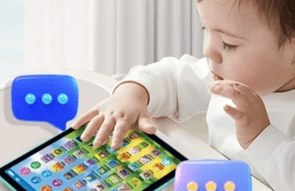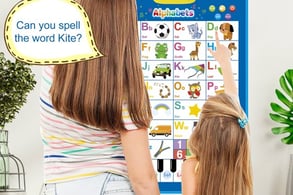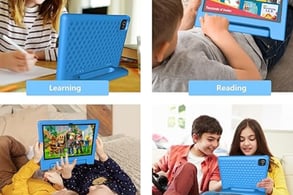
Can Tablets Improve Reading, Writing, and Arithmetic Skills?
11/15/20243 min read

In an increasingly digital world, education is embracing technology at an unprecedented pace. Tablets, in particular, have gained popularity as tools for learning, offering a blend of interactivity, accessibility, and personalization. But can they really improve foundational skills like reading, writing, and arithmetic? Let’s explore the science behind this question.
How Tablets Help:
- Interactive Features: Tablets offer interactive eBooks with embedded multimedia elements (audio, animations, and videos). These features can enhance comprehension and engagement, especially for young readers or those with learning difficulties.
- Personalization: Apps can adapt reading levels to individual learners, gradually increasing difficulty as they improve. For instance, children struggling with vocabulary can benefit from interactive dictionaries or quizzes integrated into texts.
- Motivation: Gamified reading apps, such as Epic! or Reading Eggs, turn reading into a rewarding experience, encouraging reluctant readers.
Evidence from Research:
Studies suggest that tablets can significantly improve early literacy skills. A meta-analysis published in Educational Technology Research and Development (2022) found that digital reading tools led to moderate improvements in vocabulary and comprehension compared to traditional methods. However, excessive screen use without parental guidance may hinder deeper reading habits.
How Tablets Help:
- Typing and Handwriting Integration: Many tablets support handwriting input alongside typing, using styluses that simulate pen-and-paper writing. This versatility benefits motor skills and writing fluency.
- Feedback Mechanisms: Writing apps like Grammarly or ProWritingAid provide immediate feedback on grammar, spelling, and style, accelerating learning.
- Creative Platforms: Tablets enable multimedia storytelling. Apps such as Book Creator allow students to combine text, images, and audio, fostering creativity alongside technical writing skills.
Challenges and Considerations:
While tablets improve certain aspects of writing, some educators argue that they might hinder the development of fine motor skills required for traditional handwriting. Balancing digital and traditional methods remains key.
How Tablets Help:
- Interactive Practice: Math apps like Khan Academy and Prodigy turn problem-solving into an engaging activity. Visual representations, such as animated graphs or manipulatives, make abstract concepts tangible.
- Adaptive Learning: Advanced apps use AI to tailor exercises to a learner’s pace and proficiency, offering targeted support in areas where students struggle.
- Gamification: Gamified math challenges motivate students to practice more consistently. Immediate rewards for solving problems reinforce learning.
Research Insights:
A 2021 study in the Journal of Educational Psychology found that students using math apps for 15 minutes daily showed faster improvement in arithmetic skills compared to peers using traditional methods. However, researchers cautioned that benefits depend on the app's quality and alignment with curriculum standards.
1. Accessibility: Tablets can store entire libraries, offering instant access to diverse learning resources.
2. Engagement: Interactive and gamified features make learning more appealing to digital natives.
3. Inclusivity: Assistive technologies on tablets support learners with disabilities, such as text-to-speech or dyslexia-friendly fonts.
1. Screen Time Concerns: Prolonged use may lead to screen fatigue or reduced attention spans.
2. Distraction Risk: Tablets can be a double-edged sword if not used under supervision, with apps and games diverting focus from learning.
3. Equity Issues: Not all students have access to tablets, potentially widening the digital divide.
The evidence is clear: tablets have the potential to improve reading, writing, and arithmetic skills, particularly when used as part of a balanced educational approach. They excel in making learning interactive, personalized, and engaging. However, they are not a one-size-fits-all solution. Success depends on quality content, proper supervision, and integration with traditional teaching methods.














Explore
Engaging tips for kids and tablet usage.
Learn
Play
123-456-7890
© 2024. All rights reserved.
